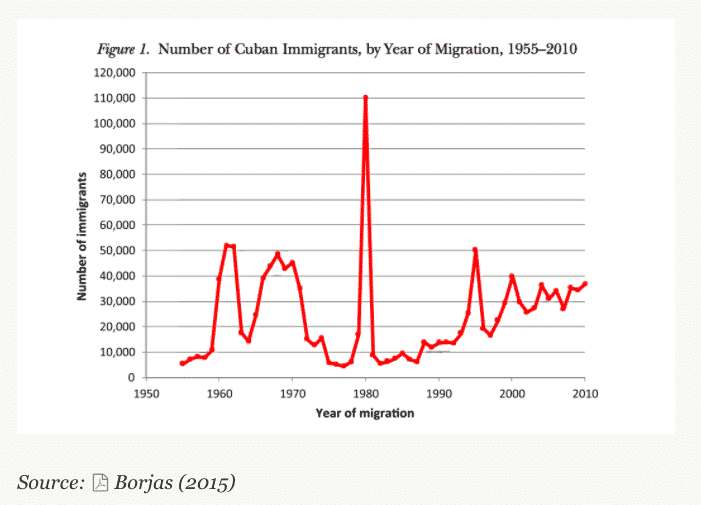Adam Tooze over at his website:
it was not the politics of crime that led Stephen Miller to invoke Mariel in his exchange with the Times. It was economics. Mariel has a double life. It is on the one hand an emblem of social and political crisis in Miami in the 1980s. But at the same time and in rather contradictory ways it also serves economists as a crucial field for studying the labour market impact of mass migration.
What has lured economists onto this fraught terrain is not the temptation of scoring a mention from a Trump spokesperson. What makes the Mariel Boatlift irresistible is a question of methodology. Economists don’t like complex entangled histories. It is hard to cleanly identify causation in complex social settings. So their gold standard are so-called “natural experiments” – both terms carry heavy weight – by which they mean moments when out of complex and entangled social reality emerge events or interactions that seem truly exogenous and random and thus allow the clear identification of what is cause and what is effect.

Generally in studies of labour markets and immigration such moments are not easy to find. Judging the impact of the large migrant flows from Mexico on US labour markets is difficult because those migrant flows are themselves heavily influenced by the level of unemployment in the US. By contrast, Castro’s decision in early 1980 to open the Mariel port to emigration was exogenous. We do not need to worry that our assessment of the impact of the Cuban migrants on the Miami labour market will be muddied by the fact that the Cubans chose to migrate to a labour market that was particularly well-suited to receiving them. The inflow of migrants from Cuba and Haiti raised Miami’s workforce by 7-8 percent in a matter of months over the spring and summer of 1980. Such an increase in the supply of labour ought to “show up” in increased pressure on wages, perhaps particularly at the bottom end of the labour market. The hope, of course, is that once we have cleanly identified mass migration’s impact on wages and employment in Miami in 1980 we can transfer those insights to other settings where the chain of cause and effect is more tangled.
More here.
